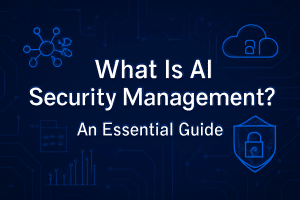Cyber threats are blowing up in 2026, and companies can’t risk cutting corners anymore. Whether it’s ransomware locking systems or hackers stealing millions, businesses are coughing up huge salaries to those who can keep their data safe. Cybersecurity isn’t just another IT job now, it’s a gold mine.
From small startups to massive corporations, everyone’s hunting for skilled professionals. And it’s not just IT giants; banks, healthcare providers, and even government agencies are all competing for the best talent.
Let’s get into the highest-paying cybersecurity roles this year and why they are worth considering.
Executive Summary
| Role | Key Responsibilities | Required Skills/Certifications | Salary Insights (2026) | Industries Offering High Packages |
| Chief Information Security Officer (CISO) | Leadership in organizational cybersecurity strategy | Leadership, CISSP, CISM, business acumen | $200,000 – $500,000+ annually | Finance, Technology, Healthcare |
| Cloud Security Engineer | Safeguarding cloud infrastructures and services | Cloud certifications (AWS, Azure), CISSP | $120,000 – $180,000 annually | Technology, E-commerce, Financial Services |
| Security Architect | Designing secure cyber infrastructures | Network security, architecture frameworks | $140,000 – $200,000 annually | Finance, Technology, Defense |
| Ethical Hacker | Simulating cyberattacks to identify vulnerabilities | CEH, OSCP, penetration testing expertise | $100,000 – $150,000 annually | Technology, Government, Consulting |
| Cybersecurity Consultant | Advising organizations on cybersecurity strategies | CISSP, CISM, industry-specific expertise | $120,000 – $200,000 annually | Consulting, Finance, Energy |
| Incident Manager | Crisis management during cyber incidents | CISSP, CISM, real-time threat response skills | $110,000 – $160,000 annually | Technology, Government, Critical Infrastructure |
| Penetration Tester | Probing systems for vulnerabilities | OSCP, CEH, advanced testing tools | $90,000 – $130,000 annually | Technology, Healthcare, Financial Services |
| Cybersecurity Data Scientist | Combining data science with security analytics | Python, ML/AI, security analytics expertise | $130,000 – $180,000 annually | Big Data, Technology, Finance |
| Malware Analyst | Analyzing and countering malware threats | Reverse engineering, coding, cybersecurity certs | $90,000 – $140,000 annually | Defense, Technology, Research Labs |
| Application Security Engineer | Ensuring software security in development | AppSec tools, secure coding, CISSP | $110,000 – $160,000 annually | Technology, E-commerce, SaaS |
High salaries in cybersecurity often go hand-in-hand with the right credentials. If you’re wondering which certifications open doors to these roles, check out our guide on the best cybersecurity certifications in 2026 to align your career goals with top-paying jobs.
Top 10 Cyber Security Jobs with High Salaries
Cybercrime is expected to cost companies trillions in 2026, making skilled professionals more valuable than ever. High salaries in this field aren’t just a perk, they are a necessity to attract and retain talent who can keep hackers at bay.
Let’s dive into the top-paying roles in 2026, what makes them lucrative, and how you can step into these positions.
1. Chief Information Security Officer (CISO)
The CISO sits at the top of the cybersecurity ladder. They don’t just manage IT teams—they oversee the entire security strategy of an organization. From setting up policies to managing teams that defend against threats, the CISO ensures that every corner of the organization’s digital infrastructure is secure.
- Salary Expectations: CISOs earn between $180,000 and $400,000 annually, depending on the company’s size and industry.
- Key Skills Required: Strong leadership, risk management, and decision-making skills. Certifications like CISSP (Certified Information Systems Security Professional) or CISM (Certified Information Security Manager) boost credibility. For tips on earning the CISSP certification and acing the exam, refer to The Ultimate CISSP Exam Guide in 2026
Tech giants, financial institutions, and healthcare organizations pay top dollar for CISOs due to the sensitive nature of their data.
2. Cloud Security Engineer
With more companies adopting cloud platforms like AWS, Azure, and Google Cloud, the need for cloud security engineers is at an all-time high. These professionals ensure that the data stored in the cloud is secure from hackers and breaches.
- Salary Range: Cloud security engineers make $130,000 to $180,000 per year, with top salaries found in tech and finance.
- Must-Have Skills: Familiarity with cloud platforms, network security, and scripting languages like Python. Certifications such as AWS Certified Security Specialty or Azure Security Engineer Associate are highly valued.
Tech companies, banks, and even startups looking to leverage cloud computing without compromising security.
3. Security Architect
Why Security Architects Are the Backbone of Cybersecurity
Security architects design the entire security framework of an organization. They create systems and protocols that protect networks, apps, and sensitive data from cyber threats. This role is strategic and hands-on, making it one of the most respected in the field.
- Annual Compensation: Security architects earn $120,000 to $180,000 a year.
- Essential Skills: Expertise in firewalls, encryption, and secure network design. Certifications like SABSA or TOGAF can enhance career prospects.
Banks, insurance companies, and retail chains with high-volume transactions rely on security architects to prevent fraud.
4. Ethical Hacker
Turning the Tables on Cybercriminals
Ethical hackers, or penetration testers, test systems for vulnerabilities by trying to hack them, legally. Their goal is to identify weaknesses before real hackers exploit them.
- Pay Scale: Ethical hackers earn $100,000 to $150,000 annually, with experienced professionals and those holding CEH (Certified Ethical Hacker) or OSCP certifications earning on the higher end.
- Core Skills: Scripting, reverse engineering, and hands-on experience with tools like Kali Linux or Metasploit.
- Educational Requirements: This job role requires a degree in ABC, and certifications such as CEH 312-50 V12 are also helpful in finding jobs as Government agencies, tech firms, and corporations with sensitive customer data all require ethical hackers.
5. Cybersecurity Consultant
Cybersecurity consultants don’t work for just one company, they manage multiple clients, offering tailored solutions for different challenges. This flexibility allows them to command premium rates.
- Earning Potential: Consultants make $120,000 to $200,000 annually, with some earning more depending on their expertise and clientele.
- Key Competencies: In-depth knowledge of cybersecurity frameworks, excellent communication skills, and certifications like CISSP or CISM.
As a consultant, you set your rates, work on diverse projects, and often enjoy remote flexibility.
6. Incident Manager
Incident managers are responsible for handling cyber emergencies. When a breach occurs, they coordinate teams, mitigate damage, and ensure that business operations continue with minimal disruption.
- Average Salary: Incident managers earn $90,000 to $140,000, with higher salaries in industries like finance and tech.
- Skills That Stand Out: Strong crisis management abilities and certifications such as CISM or CRISC.
A well-managed incident can save millions in damages, making this role indispensable.
7. Penetration Tester
Penetration testers, or “pentesters,” play a crucial role in proactive cybersecurity. They simulate attacks to expose vulnerabilities in systems, applications, or networks.
- Earnings: Pen testers make $80,000 to $130,000 a year, with opportunities to earn more through bonuses for challenging projects.
- What You Need to Excel: Certifications like OSCP or CEH are must-haves. Knowledge of tools like Wireshark and Burp Suite is also essential.
Pen testers are hired across industries, including retail, healthcare, and even military organizations.
8. Cybersecurity Data Scientist
Merging Data Analytics with Cybersecurity
Cybersecurity data scientists analyze data patterns to predict and prevent threats. This hybrid role requires expertise in both data science and security protocols.
- Annual Pay: These specialists earn between $120,000 and $200,000, depending on their skills and the industry they work in.
- Essential Skills: Proficiency in Python, R, and machine learning, along with knowledge of cybersecurity principles.
Finance, e-commerce, and healthcare industries heavily rely on data scientists to detect and prevent fraud.
9. Malware Analyst
Malware analysts study malicious software to figure out how it works and how to stop it. They’re a crucial part of any team dealing with advanced threats like ransomware.
- Salary Range: Malware analysts earn $100,000 to $140,000 annually.
- Critical Skills: Reverse engineering, programming languages like C++, and tools like IDA Pro or OllyDbg.
Malware analysts are in high demand in both the public and private sectors, particularly in government agencies.
10. Application Security Engineer
Application security engineers ensure that software applications are built with strong security measures to prevent hacking or data breaches.
- Earning Potential: These engineers make $110,000 to $150,000 per year.
- What You Need to Succeed: Certifications like CSSLP and knowledge of DevSecOps are invaluable.
Securing applications is critical in today’s software-dependent world, from banking apps to healthcare portals.
What skills and certifications Drive up salaries in cybersecurity?
Employers today aren’t just looking for someone who knows their way around firewalls; they’re after specialists who can handle the latest threats, tools, and frameworks.
Let’s discuss the skills and certs that are bumping up paychecks in 2026, and why the right combo of expertise and soft skills can take your career to the next level.
Certs get your foot in the door, but employers want proof that you can actually do the job. Here are the technical skills they’re after:
1. Cloud Security
Knowing how to secure platforms like AWS, Azure, or Google Cloud is a top priority for companies. Cloud misconfigurations are one of the biggest causes of breaches, so being able to identify and fix them is a major plus.
2. Penetration Testing
Being a pentester is more than running tools, its about thinking creatively to find vulnerabilities. Tools like Metasploit, Burp Suite, and Wireshark are standard, but the real skill lies in understanding how systems interact and where they might break down.
3. Incident Response
When things go south, incident responders are the ones who step in to fix it. This skill involves isolating threats, recovering systems, and preventing future attacks. Employers love candidates who’ve dealt with real-life incidents.
4. Programming
Whether it’s Python for automation, Java for app security, or C++ for malware analysis, being able to code is a huge advantage. It’s not always required, but it sets you apart.
5. Data Analytics in Security
Data is everywhere, and being able to analyze it for trends, anomalies, and potential threats is a growing need. You’re ahead of the game if you can use machine learning or AI to predict attacks.
The Power of Soft Skills in Cybersecurity
Cybersecurity isn’t just about tech, it’s about people too. Employers don’t want someone who hides behind a screen all day. They need professionals who can communicate, collaborate, and lead.
1. Communication
You might be a whiz with firewalls, but if you can’t explain a risk to a non-technical executive, you’re going to struggle. Simplifying complex problems and proposing solutions is a skill that pays off big time.
2. Problem-Solving
Cybersecurity is about solving puzzles. Whether it’s figuring out how an attacker got in or stopping an ongoing breach, being able to think critically and act fast is a must.
3. Teamwork
No one can secure an organization alone. Cybersecurity teams work across departments, which means knowing how to collaborate with developers, IT staff, and even HR teams.
4. Leadership
Leadership is critical for those aiming for roles like CISO or security manager. It’s not just about managing people, it’s about inspiring them to care about security as much as you do.
If you want to see how these beginner-friendly certs connect to long-term growth, our complete cybersecurity career path guide maps out how each step can lead to advanced roles and higher salaries.
Why Continual Learning Is Non-Negotiable in Cybersecurity?
Cybersecurity is a fast-changing field. New tools, smarter threats, and advanced technologies are introduced regularly. What worked yesterday might not work today. If you stop learning, you risk falling behind. Here’s why constant learning is critical in cybersecurity:
1. Staying Up-to-Date with Threats and Trends
Hackers are always learning new ways to attack, and cybersecurity professionals need to keep up. By understanding the latest threats, like zero-day exploits or AI-powered attacks, you can stay ahead and better protect systems and data.
2. Mastering Specialized Skills
General knowledge in cybersecurity is a great start, but becoming an expert in a specific area sets you apart. Whether it’s cloud security, malware analysis, ethical hacking, or penetration testing, specialization can make you indispensable and lead to better job opportunities and higher salaries.
3. Adapting to New Technologies
Technology evolves rapidly, and cybersecurity must keep pace. Learning about advancements in AI, blockchain, or quantum computing ensures you’re prepared for new challenges and innovations that impact security.
4. Strengthening Problem-Solving Skills
Cybersecurity professionals face complex problems every day. Continuous learning sharpens your ability to think critically and solve problems more effectively. The more you learn, the better you become at addressing unique security challenges.
5. Networking and Learning from Others
Joining professional forums, attending conferences, and participating in workshops allows you to share ideas and gain insights from others in the field. Networking not only helps you stay informed but also opens doors to new job opportunities and career growth.
6. Meeting Industry Standards and Certifications
Employers highly value cybersecurity certifications like CISSP, CEH, and CompTIA Security+. Regular learning helps you earn these credentials and keeps you updated with industry standards, making you more competitive in the job market.
7. Building Confidence in Your Role
Continuous learning boosts your confidence by ensuring you have the skills and knowledge to handle emerging threats. This confidence helps you make better decisions and perform your job more effectively.
8. Securing Your Career Future
As cybersecurity evolves, so do the job roles. By staying informed and constantly learning, you remain adaptable and ready for future changes, ensuring a long and successful career in the field.
How to Break Into High-Paying Cybersecurity Jobs?
Breaking into cybersecurity, especially the high-paying roles, might seem overwhelming at first, but the field is actually pretty welcoming if you know where to start. Whether you’re fresh out of college, shifting careers, or just looking for something that pays better, there’s a path for you.
It’s all about learning the right skills, earning the right certs, and connecting with the right people. If you’re considering certifications, the ISC2 CC is an excellent choice. Learn more about its benefits and why it’s a game-changer in our guide, Everything You Should Know About ISC2 CC Certification in 2026.
Start With the Basics, Even If You’re a Complete Beginner
First things first, you need to understand what cybersecurity is about. This isn’t just some tech job where you stare at screens all day. It’s about protecting systems, networks, and data from attacks that can cost companies millions.
So, start simple. Watch free tutorials, read blogs, and maybe even take a few online courses. Get comfortable with concepts like firewalls, encryption, malware, and phishing.
If you’ve got zero experience, that’s okay. Focus on building foundational skills in areas like networking (learning how data flows) and basic coding (Python is a good starting point).
Tips for Newcomers and Career Changers
Switching into cybersecurity doesn’t require a four-year degree or decades of experience. Here’s how to get a head start:
1. Leverage Your Current Skills
Maybe you’ve worked in IT, customer support, or even retail. Use those skills to your advantage. If you’re good at troubleshooting, for instance, that’s a great segue into roles like SOC analyst (Security Operations Center).
If you’ve managed people or projects, aim for something like cybersecurity consulting or incident management.
2. Earn Certifications That Matter
Certifications (or certs) are your golden ticket into the field. Some, like CompTIA Security+, are entry-level and give you the basic knowledge companies want. As you grow, you can aim for higher-tier certs like CISSP, CEH, or AWS Security Specialty, which open doors to higher-paying jobs.
Certs not only prove your knowledge but also show employers you’re serious. If you’re preparing for the Security+ exam, check out Your Ultimate SY0-701 Exam Preparation Guide to ensure success on your first attempt.
3. Practice Hands-On Skills
Cybersecurity isn’t something you can just read about—it’s hands-on. Platforms like TryHackMe, Hack The Box, or even free resources like CTF (Capture the Flag) challenges help you practice real-world skills. Start breaking things and fixing them—legally, of course.
Internships and Entry-Level Jobs Can Be Game-Changers
It’s tough landing a high-paying gig as your first job, so start small. Internships, part-time roles, or entry-level jobs like SOC Analyst or IT Support are a great way to get your foot in the door. Look for positions that let you work closely with security teams, even if it’s not directly a cybersecurity role.
The key here is to learn as much as you can while on the job. Ask questions, shadow senior employees, and take note of what tools they’re using. Experience, even at a junior level, is valuable.
Certifications and Self-Study: Accelerate Your Journey
If you can’t afford formal education or don’t have time for it, certifications and self-study are your best friends. Here’s a roadmap:
- Start with the Basics: Certs like CompTIA IT Fundamentals (ITF+), CompTIA Network+, or CompTIA Security+ give you a strong foundation.
- Move to Specialized Areas: If cybersecurity analysis and incident response interest you, consider the Analyst+ Certification, which equips you with advanced skills to tackle today’s threats. For hacking, go for Certified Ethical Hacker (CEH). Into cloud security? AWS Certified Security – Specialty is a solid choice.
- Combine with Self-Study: Use platforms like Udemy, Coursera, or YouTube. Many free resources cover exam topics in detail.
Self-study requires discipline, but it’s incredibly rewarding. Make a schedule, tackle one topic at a time, and practice regularly.
Networking Isn’t Optional—It’s Essential
Let’s be honest: cybersecurity jobs don’t always go to the smartest candidate—they go to the best-connected one. Networking can help you land roles that might not even be posted online.
1. Join Communities
Cybersecurity forums like Reddit (r/cybersecurity), Discord groups, or LinkedIn communities are great places to start. Engage in discussions, ask for advice, and share your journey.
2. Attend Meetups and Events
Check out cybersecurity conferences, local meetups, or virtual summits. Events like Black Hat, DEF CON, or OWASP Meetups are goldmines for meeting people in the industry.
3. Connect on LinkedIn
Don’t just send random requests—be intentional. Connect with cybersecurity professionals, recruiters, and hiring managers. Engage with their posts and start conversations.
4. Find a Mentor
A good mentor can guide you through certifications, share insider tips, and help you avoid common mistakes.
A Few Parting Thoughts!
Breaking into high-paying cybersecurity jobs isn’t easy, but it’s doable if you’re willing to put in the effort. Learn the basics, get certified, and build connections. Start small, but aim high—those six-figure salaries are within reach if you stay persistent.
Remember, every expert was once a beginner, so don’t get discouraged by how far you think you have to go. Take it one step at a time, and the cybersecurity field will welcome you with open arms.
FAQs: Common Questions About Cybersecurity Careers
What is the average salary for cybersecurity professionals in 2026?
Cybersecurity salaries range widely, with entry-level roles like SOC Analysts earning $60,000–$80,000, while mid-level roles such as Penetration Testers or Incident Managers earn $90,000–$130,000. Depending on the industry and expertise, high-level positions like CISOs and Security Architects can make $180,000 to $400,000.
Which certifications are necessary for a six-figure cybersecurity job?
Certifications like CISSP (for leadership roles), CEH (for ethical hacking), and AWS Certified Security – Specialty (for cloud security) are key for six-figure salaries. Others, such as CISM and OSCP, are highly valued for managerial and penetration testing positions.
Can you transition to cybersecurity without a technical background?
Yes, transitioning is possible by starting with beginner-friendly certifications like CompTIA Security+ or IT Fundamentals. Transferable skills like problem-solving, communication, and analytical thinking can also help you excel in cybersecurity.
How do remote opportunities impact salaries in cybersecurity?
Remote roles often allow professionals to work for higher-paying companies in major markets, regardless of location. However, some companies adjust salaries based on the cost of living in the employee’s region.
Which industries are hiring the most cybersecurity experts in 2026?
The top industries hiring cybersecurity professionals are finance, healthcare, and technology, as they handle vast amounts of sensitive data. Government agencies and retail sectors are also increasing cybersecurity investments due to rising threats.


























